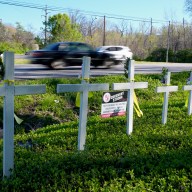When devastation and incalculable human suffering happens — like the horror in Haiti — the subsequent outpouring of support is a refreshing reminder of human altruism; an encouraging affirmation given the regrettable events of another news story that was uncovered by the Toronto Star a day after the quake, yet overshadowed by it.
This story demonstrated the darker element of humanity. Here’s how it goes: Twenty recovering addicts came to their early morning class at the private Clear Haven Center, just north of Montreal. They were part of a three-month cognitive therapy program costing more than $15,000. As they arrived at Clear Haven, they were greeted with the announcement that the centre had gone bankrupt.
Then, with no warning, no plan and no place to go, they were given $100, then arbitrarily dumped on a bus like a load of refuse headed to a convenient depot: Montreal’s international airport. Some were crying. No one knows how much money was lost by the clients and their families.
Whatever progress they had made ended abruptly. Two clients snorted cocaine on the bus and Elijah Peabbles, 26, relapsed into heroin use the day after, overdosed and ended up brain dead. He had come a long way in only a month. For the others, who knows?
How these vulnerable human beings were treated is unconscionable and cruel, yet highlights the plight of inequity and injustice faced by many in the greatest need of advocacy: Addicts, mental health sufferers, the disabled and the poor, and this group has been growing.
Bill Wilkerson, the founder of Global Business and Economic Roundtable on Mental Health, has declared depression among Canada’s public servants as the country’s biggest public health crisis, while warning that it’s on the rise everywhere.
Many people who fall into addictions have underlying mental health issues and are using their addiction as a form of self-medication. Mental health professionals have stated that addictions cut across all socio-economic strata and takes a devastating toll on entire families.
Respect and sensitivity by all professionals attending to those in greatest need is a reasonable expectation, yet contrary to the arrant disregard displayed at Clear Haven Center.
The people let go at Clear Haven could have been one of our loved ones. How they were treated highlights the urgency for citizens to become astute observers and advocates for those close to us who are in need.
















